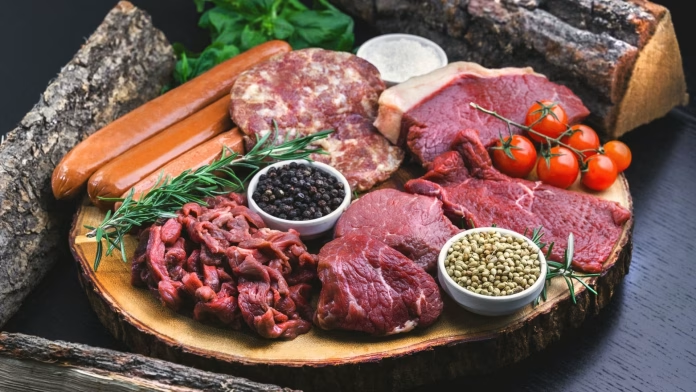The Lion Diet is a trending eating plan that has been gaining popularity in recent years. The diet has been touted as a way to lose weight, increase energy, and improve overall health. However, there are concerns about the safety and sustainability of this diet.
In this article, we will examine the Lion’s Diet and what experts say about its safety.
What is the Lion Diet?
The Lion Diet is a high-fat, high-protein, low-carbohydrate diet that consists mainly of meat and animal products. The diet is based on the idea that humans should eat like lions, which are carnivorous animals. Supporters of the Lion Diet claim that it can help with weight loss, increase energy levels, and improve overall health.
The diet typically includes foods such as:
- Beef
- Lamb
- Pork
- Chicken
- Fish
- Eggs
- Butter
- Cheese
- Cream
- Bacon
- Organ meats
Foods that are not allowed on the Lion Diet include:
- Grains
- Legumes
- Fruits
- Vegetables
- Sugar
- Processed foods
Supporters of the Lion Diet claim that these foods are not necessary for human health and can even be harmful.
Is the Lion Diet Safe?
There is limited research on the Lion Diet, so it is difficult to say whether or not it is safe in the long term. However, there are concerns about the safety and sustainability of this diet.
One of the main concerns about the Lion Diet is that it is high in saturated fat. Saturated fat is known to increase the risk of heart disease and other health problems. While some studies have suggested that saturated fat may not be as harmful as once thought, most health experts still recommend limiting the intake of saturated fat.
Another concern about the Lion Diet is that it is low in fiber. Fiber is important for digestive health and can help lower the risk of heart disease, diabetes, and other health problems. The Lion Diet does not include any fruits, vegetables, or whole grains, which are all good sources of fiber.
The Lion Diet is also very restrictive and may be difficult to follow in the long term. It can be challenging to get all the necessary nutrients on a diet that excludes entire food groups, such as fruits and vegetables.
Additionally, the Lion Diet may not be sustainable in the long term. Meat production is a major contributor to greenhouse gas emissions and environmental degradation. Eating a high-meat diet can also be expensive, which may make it difficult for some people to follow.
What do Experts Say about the Lion Diet?
Most health experts do not recommend the Lion Diet. They argue that a balanced diet that includes a variety of foods is the best way to achieve optimal health.
The American Heart Association recommends a diet that is high in fruits, vegetables, whole grains, lean protein, and healthy fats. This type of diet has been shown to lower the risk of heart disease, stroke, and other health problems.
The World Health Organization also recommends a balanced diet that includes a variety of foods. They recommend that people limit their intake of saturated fat, sugar, and salt, and increase intake of fruits, vegetables, and whole grains.
Some experts have expressed concern that the Lion Diet may be a fad diet that promotes unhealthy eating habits. They argue that people should focus on making sustainable lifestyle changes that they can maintain in the long term, rather than following a restrictive eating plan.
The Lion Diet is a high-fat, high-protein, low-carbohydrate diet that consists mainly of meat and animal products. While supporters of the diet claim that it can lead to weight loss, increased energy levels, and improved overall health, there are concerns about the safety and sustainability of this eating plan.
Most health experts do not recommend the Lion Diet and argue that a balanced diet that includes a variety of foods is the best way to achieve optimal health.





